| Hot Topics | |
|---|---|
No Escape From The NHK Man?
Re: No Escape From The NHK Man?
What shows are they? On NHK 1? I have no idea what channel is what as we never watch terrestrial TV - only cable or internet TV on demand.
GomiGirl
The Keitai Goddess!!!
The Keitai Goddess!!!
-

GomiGirl - Posts: 9129
- Joined: Fri Jul 05, 2002 3:56 pm
- Location: Roamin' with my fave 12"!!
Re: No Escape From The NHK Man?
Not that I have much experience since I'm here...
But it's not the 90' anymore, cable, sat, airwave, there is not much difference in the -lack of- qualilty...
Shivers....
Quick summary:
But it's not the 90' anymore, cable, sat, airwave, there is not much difference in the -lack of- qualilty...
Shivers....
Quick summary:
You do not have the required permissions to view the files attached to this post.
-
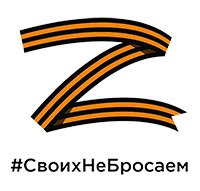
Coligny - Posts: 21824
- Images: 10
- Joined: Sat Jan 17, 2009 8:12 pm
- Location: Mostly big mouth and bad ideas...
Re: No Escape From The NHK Man?
"Hunting the ghosts of nazi aliens to prevent the end of the world" Sounds like a winner to me, sign me up for the fuax history channel.
"We can't stop here! this is bat country"
-
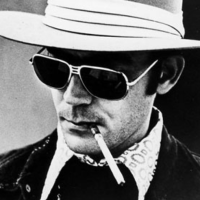
J.A.F.O - Maezumo
- Posts: 1232
- Joined: Tue Jan 08, 2013 11:13 pm
- Location: Polar Bear in a sauna
Re: No Escape From The NHK Man?
J.A.F.O wrote:"Hunting the ghosts of nazi aliens to prevent the end of the world" Sounds like a winner to me, sign me up for the fuax history channel.
It's only a matter or time...
Until then, drunk history!
-

Ol Dirty Gaijin - Maezumo
- Posts: 892
- Joined: Sat Jan 10, 2004 4:27 pm
- Location: Sunning by the Sumida
Re: No Escape From The NHK Man?
Got nuthin on th drunken woodworker...
-

Coligny - Posts: 21824
- Images: 10
- Joined: Sat Jan 17, 2009 8:12 pm
- Location: Mostly big mouth and bad ideas...
Re: No Escape From The NHK Man?
fuck... he's a toledoan.... shiftless drunkards the lot of em.
"We can't stop here! this is bat country"
-

J.A.F.O - Maezumo
- Posts: 1232
- Joined: Tue Jan 08, 2013 11:13 pm
- Location: Polar Bear in a sauna
Re: No Escape From The NHK Man?
J.A.F.O wrote:fuck... he's a toledoan.... shiftless drunkards the lot of em.
The place seems cool...
-

Coligny - Posts: 21824
- Images: 10
- Joined: Sat Jan 17, 2009 8:12 pm
- Location: Mostly big mouth and bad ideas...
Re: No Escape From The NHK Man?
Coligny wrote:J.A.F.O wrote:fuck... he's a toledoan.... shiftless drunkards the lot of em.
The place seems cool...
I did get some 3 foot tall beer glasses from the Libbey Outlet Store last I was in town, which was cool.
"We can't stop here! this is bat country"
-

J.A.F.O - Maezumo
- Posts: 1232
- Joined: Tue Jan 08, 2013 11:13 pm
- Location: Polar Bear in a sauna
Re: No Escape From The NHK Man?
And if you didn't have enough reasons to sign up to NHK. Here is another -

http://www.japantimes.co.jp/news/2014/0 ... l-stances/
A quick prerusal of his resume indicates that he was also fired last year as president of the Badminton Asia Confederation.
http://www.badzine.net/news/badminton-a ... sed/24398/

New NHK chief: ‘comfort women’ only wrong per ‘today’s morality’; programming must push Japan’s territorial stances
Kyodo
Jan 25, 2014
The new chairman of NHK said Saturday that its programming for foreign audiences should “state Japan’s positions in no uncertain terms” on territorial disputes with China and South Korea, while defending the nation’s use of wartime “comfort women” and dismissing press freedom concerns about the new state secrets law.
http://www.japantimes.co.jp/news/2014/0 ... l-stances/
A quick prerusal of his resume indicates that he was also fired last year as president of the Badminton Asia Confederation.
http://www.badzine.net/news/badminton-a ... sed/24398/
-

dimwit - Maezumo
- Posts: 3827
- Images: 3
- Joined: Tue Jun 01, 2004 11:29 pm
Re: No Escape From The NHK Man?
Exactly.
Remember what I said about NHK already being in the government's pocket?
There it is in black and white (or colour if you pay extra).
NHK is the government's propaganda channel, plain and simple.
And they're demanding that the people pay for it.
Remember what I said about NHK already being in the government's pocket?
“When the government is saying, ‘Right,’ we can’t say, ‘Left.’ International broadcasting has such a (propagandist) nuance,” Katsuto Momii told a news conference held to mark the start of his three-year stint at the public broadcaster.
NHK’s programming “shouldn’t be far removed from (the stance of) the Japanese government,” he said ...
There it is in black and white (or colour if you pay extra).
NHK is the government's propaganda channel, plain and simple.
And they're demanding that the people pay for it.
-
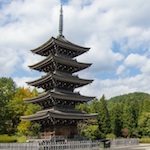
Yokohammer - Posts: 5090
- Joined: Tue Sep 30, 2008 6:41 pm
- Location: South of Sendai
Re: No Escape From The NHK Man?
dimwit wrote:And if you didn't have enough reasons to sign up to NHK. Here is anotherNew NHK chief: ‘comfort women’ only wrong per ‘today’s morality’; programming must push Japan’s territorial stances
http://www.japantimes.co.jp/news/2014/0 ... l-stances/
Japan govt distances itself from NHK head's 'comfort women'
Agence France-Presse | January 27, 2014 | GlobalPost
..."Our understanding is that chairman Momii made the comment as an individual", not as the head of Japan's public broadcaster, Chief Cabinet Secretary Yoshihide Suga said.
It declined to comment further on the issue.
Momii, 70, has since apologised for the comments, which he described as a personal opinion.
He conceded they were "extremely inappropriate", and admitted he should not have expressed his personal views publicly, Kyodo News reported Monday.
Momii previously served as a vice chairman of trading house Mitsui, and is rumoured to have been Prime Minister Shinzo Abe's preferred choice as NHK chairman, the news agency said.
During Saturday's press conference Momii had also said the comfort women issue was "complicated because South Korea says Japan was the only country that forcibly recruited (women)"...
More...
-
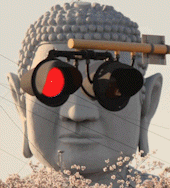
Taro Toporific - Posts: 10021532
- Images: 0
- Joined: Tue Sep 10, 2002 2:02 pm
Re: No Escape From The NHK Man?
Taro Toporific wrote:dimwit wrote:And if you didn't have enough reasons to sign up to NHK. Here is anotherNew NHK chief: ‘comfort women’ only wrong per ‘today’s morality’; programming must push Japan’s territorial stances
http://www.japantimes.co.jp/news/2014/0 ... l-stances/
Japan govt distances itself from NHK head's 'comfort women'
Agence France-Presse | January 27, 2014 | GlobalPost
..."Our understanding is that chairman Momii made the comment as an individual", not as the head of Japan's public broadcaster, Chief Cabinet Secretary Yoshihide Suga said.
It declined to comment further on the issue.
Momii, 70, has since apologised for the comments, which he described as a personal opinion.
He conceded they were "extremely inappropriate", and admitted he should not have expressed his personal views publicly, Kyodo News reported Monday.
Momii previously served as a vice chairman of trading house Mitsui, and is rumoured to have been Prime Minister Shinzo Abe's preferred choice as NHK chairman, the news agency said.
During Saturday's press conference Momii had also said the comfort women issue was "complicated because South Korea says Japan was the only country that forcibly recruited (women)"...
More...
There is no place for expressing personal opinions when appointed as head of a taxpayer-funded organization where impartiality should be foremost on the appointee's mind. The proper action for Mr. Momii would be to resign. Of course, that won't happen. The biggest problem is that he is voicing what a large swathe of this cuntry's population feels, indoctrinated or not.
-

Screwed-down Hairdo - Maezumo
- Posts: 6722
- Joined: Wed May 20, 2009 7:03 pm
Re: No Escape From The NHK Man?
Screwed-down Hairdo wrote:There is no place for expressing personal opinions when appointed as head of a taxpayer-funded organization
[dons Hat of Pedantry] What aboot when appointed head of a publicly owned corporation funded by viewers' payments of a license fee?
-

yanpa - Posts: 5671
- Images: 11
- Joined: Sun Nov 04, 2007 11:50 am
- Location: Tokyo
Re: No Escape From The NHK Man?
And on a personal note...
ANYONE FOUND RESPONSIBLE bing bing FOR THOSE FUCKING ANNOYING SOUND EFFECTS bing bing bing bing EVERY THREE WORDS bing bing bing bing ON ALL CHANNELS bing bing SHOULD BE EXILED TO THAT NEW VOLCANIC ISLAND bing bing AND LEFT TO FEND FOR THEMSELVES bing bing WITH ONLY A BANJO FOR COMPANY whoop whoop whoop .
ANYONE FOUND RESPONSIBLE bing bing FOR THOSE FUCKING ANNOYING SOUND EFFECTS bing bing bing bing EVERY THREE WORDS bing bing bing bing ON ALL CHANNELS bing bing SHOULD BE EXILED TO THAT NEW VOLCANIC ISLAND bing bing AND LEFT TO FEND FOR THEMSELVES bing bing WITH ONLY A BANJO FOR COMPANY whoop whoop whoop .
-

yanpa - Posts: 5671
- Images: 11
- Joined: Sun Nov 04, 2007 11:50 am
- Location: Tokyo
Re: No Escape From The NHK Man?
yanpa wrote:And on a personal note...
ANYONE FOUND RESPONSIBLE bing bing FOR THOSE FUCKING ANNOYING SOUND EFFECTS bing bing bing bing EVERY THREE WORDS bing bing bing bing ON ALL CHANNELS bing bing SHOULD BE EXILED TO THAT NEW VOLCANIC ISLAND bing bing AND LEFT TO FEND FOR THEMSELVES bing bing WITH ONLY A BANJO FOR COMPANY whoop whoop whoop .
i so hate that... just like american tv wher they beep curse words but they curse every 5 seconds...
-

IparryU - Maezumo
- Posts: 4285
- Joined: Thu Jun 04, 2009 11:09 pm
- Location: Balls deep draining out
Re: No Escape From The NHK Man?
J.A.F.O wrote:fuck... he's a toledoan.... shiftless drunkards the lot of em.
I've a lot of friends from Toledo...and Barbertucky
-

American Oyaji - Posts: 6540
- Images: 0
- Joined: Sun Oct 20, 2002 9:20 pm
- Location: The Evidence of Things Unseen
Re: No Escape From The NHK Man?
yanpa wrote:And on a personal note...
ANYONE FOUND RESPONSIBLE bing bing FOR THOSE FUCKING ANNOYING SOUND EFFECTS bing bing bing bing EVERY THREE WORDS bing bing bing bing ON ALL CHANNELS bing bing SHOULD BE EXILED TO THAT NEW VOLCANIC ISLAND bing bing AND LEFT TO FEND FOR THEMSELVES bing bing WITH ONLY A BANJO FOR COMPANY whoop whoop whoop .
Watching Japanese TV is just asking to be tortured. Turn the shitbox off and you'll be a lot happier.
And you run and you run to catch up with the sun but it's sinking
Racing around to come up behind you again
The sun is the same in a relative way, but you're older
Shorter of breath and one day closer to death
Racing around to come up behind you again
The sun is the same in a relative way, but you're older
Shorter of breath and one day closer to death
-
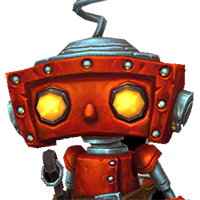
FG Lurker - Posts: 7855
- Joined: Mon Nov 29, 2004 6:16 pm
- Location: On the run
Re: No Escape From The NHK Man?
As expected, Momii's commends have resulted in a shitstorm:
At the Japan Times: New NHK boss ignites a firestorm
I am endlessly entertained and stunned by the uninterrupted queue of idiots in positions of power and responsibility who, one after another in rapid succession, put exactly the same foot in their mouths when they should bloody well know what the result is going to be by now. The sad part is that, rather than it being some sort of learning disability, it's really just a symptom of sick attitudes that have not and probably will not change, at least among a certain segment of the population.
The new chairman of NHK expressed regret Monday for his earlier comments that seemed to defend the nation’s wartime use of sex slaves, calling his words “extremely inappropriate.”
Katsuto Momii’s comments at a press conference Saturday to mark the start of his three-year term at the helm of the public broadcaster have drawn fire from opposition parties and riled the South Korean media.
At the Japan Times: New NHK boss ignites a firestorm
I am endlessly entertained and stunned by the uninterrupted queue of idiots in positions of power and responsibility who, one after another in rapid succession, put exactly the same foot in their mouths when they should bloody well know what the result is going to be by now. The sad part is that, rather than it being some sort of learning disability, it's really just a symptom of sick attitudes that have not and probably will not change, at least among a certain segment of the population.
-

Yokohammer - Posts: 5090
- Joined: Tue Sep 30, 2008 6:41 pm
- Location: South of Sendai
Re: No Escape From The NHK Man?
Yokohammer wrote:As expected, Momii's commends have resulted in a shitstorm:The new chairman of NHK expressed regret Monday for his earlier comments that seemed to defend the nation’s wartime use of sex slaves, calling his words “extremely inappropriate.”
Katsuto Momii’s comments at a press conference Saturday to mark the start of his three-year term at the helm of the public broadcaster have drawn fire from opposition parties and riled the South Korean media.
At the Japan Times: New NHK boss ignites a firestorm
I am endlessly entertained and stunned by the uninterrupted queue of idiots in positions of power and responsibility who, one after another in rapid succession, put exactly the same foot in their mouths when they should bloody well know what the result is going to be by now. The sad part is that, rather than it being some sort of learning disability, it's really just a symptom of sick attitudes that have not and probably will not change, at least among a certain segment of the population.
Need to set an age limit on positions of power...lacking the ability to adapt to 2014 standards and crotchety old racist/nationalistic views do not make a prosperous cuntry.
-
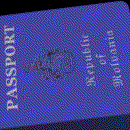
matsuki - Posts: 16047
- Joined: Wed Feb 02, 2011 4:29 pm
- Location: All Aisu deserves a good bukkake
Re: No Escape From The NHK Man?
chokonen888 wrote:Yokohammer wrote:As expected, Momii's commends have resulted in a shitstorm:The new chairman of NHK expressed regret Monday for his earlier comments that seemed to defend the nation’s wartime use of sex slaves, calling his words “extremely inappropriate.”
Katsuto Momii’s comments at a press conference Saturday to mark the start of his three-year term at the helm of the public broadcaster have drawn fire from opposition parties and riled the South Korean media.
At the Japan Times: New NHK boss ignites a firestorm
I am endlessly entertained and stunned by the uninterrupted queue of idiots in positions of power and responsibility who, one after another in rapid succession, put exactly the same foot in their mouths when they should bloody well know what the result is going to be by now. The sad part is that, rather than it being some sort of learning disability, it's really just a symptom of sick attitudes that have not and probably will not change, at least among a certain segment of the population.
you wont need to set an age limit in 10 years... they all be dead then and their grandkids will take place (if they have any).
Need to set an age limit on positions of power...lacking the ability to adapt to 2014 standards and crotchety old racist/nationalistic views do not make a prosperous cuntry.
-

IparryU - Maezumo
- Posts: 4285
- Joined: Thu Jun 04, 2009 11:09 pm
- Location: Balls deep draining out
Re: No Escape From The NHK Man?
U.S. Rejects Japanese Broadcaster’s Claim It Used ‘Comfort Women’ in World War II
Did the American government employ sex slaves during the Second World War? The newly appointed chairman of Japan’s public broadcasting system apparently thinks so.
In the latest in a string of revisionist statements by conservative leaders in Japan, Katsuto Momii said the “comfort women” system, in which women were coerced into serving in brothels for Japanese soldiers during World War II, “could be found in any nation that was at war.”
“The comfort women system is considered wrong under today’s moral values. But the military comfort women system existed as a reality at that time,” said Momii. “Can we say there were none in Germany or France? It was everywhere in Europe.”
On Tuesday, the U.S. Embassy in Japan denied that U.S forces operated a system of comfort women during or after that war. “We are not aware of anything that would indicate the U.S. engaged in any such kind of activity,” says an embassy official authorized to speak on the subject. “We would prefer not to comment any further on Mr. Momii’s statements. I would simply reiterate that his apparent belief regarding U.S. practices is incorrect.” The official asked not to be named, in line with State Department policy.
Jeff Kingston, professor of Asian Studies at Temple University’s campus in Tokyo, says Momii’s views reflect a comforting delusion among some Japanese conservatives and nationalists. “There is no evidence that any other nation recruited tens of thousands of teenagers to serve as sex slaves for their troops at the specific request of military and government authorities,” Kingston says. “U.S. troops have frequented brothels in war and occupation like troops everywhere, but the comfort women system can hardly be compared to these brothels.”
Continued
•I prefer liberty with danger to peace with slavery.•
-

Mike Oxlong - Posts: 6818
- Joined: Wed Oct 20, 2004 5:47 pm
- Location: 古き良き日本
Re: No Escape From The NHK Man?
Lies lies lies!!
And, this photo is a technicality. Besides, they really really wanted it.

http://en.wikipedia.org/wiki/Rape_durin ... n_of_Japan
and more lies
http://en.wikipedia.org/wiki/Rape_durin ... n_of_Japan
"Terese Svoboda"? Sounds like a Communist.
http://www.japanfocus.org/-terese-svoboda/2737
And, this photo is a technicality. Besides, they really really wanted it.

http://en.wikipedia.org/wiki/Rape_durin ... n_of_Japan
and more lies
http://en.wikipedia.org/wiki/Rape_durin ... n_of_Japan
"Terese Svoboda"? Sounds like a Communist.
http://www.japanfocus.org/-terese-svoboda/2737
-
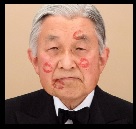
TennoChinko - Maezumo
- Posts: 1340
- Joined: Mon Feb 27, 2006 9:33 am
Re: No Escape From The NHK Man?
The RAA:
Employees 55,000 total,[1] 2,000 prostitutes[2]
What kind of business model is that? Madness. Or perhaps they needed vast numbers of full time recruiters given how few workers they were able to assemble.
And yes. Armies always rape. Especially when they have fought their way into their enemy's country. Sad but true. Have a gander at what happened in Germany and listen to testimony of some of the old boys looking to get things off their chest before they meet their maker.
So yes. We are dealing with shades of grey rather than black and white. Still, some of those greys are charcoal grey - but you all knew that anyway.
Employees 55,000 total,[1] 2,000 prostitutes[2]
What kind of business model is that? Madness. Or perhaps they needed vast numbers of full time recruiters given how few workers they were able to assemble.
And yes. Armies always rape. Especially when they have fought their way into their enemy's country. Sad but true. Have a gander at what happened in Germany and listen to testimony of some of the old boys looking to get things off their chest before they meet their maker.
So yes. We are dealing with shades of grey rather than black and white. Still, some of those greys are charcoal grey - but you all knew that anyway.
It is a tale told by an idiot, full of sound and fury, signifying nothing.
- Macbeth (Act 5, Scene 5)
William Shakespeare, April 1564 - May 3rd 1616
- Macbeth (Act 5, Scene 5)
William Shakespeare, April 1564 - May 3rd 1616
-
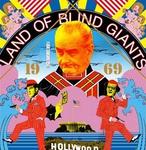
Wage Slave - Maezumo
- Posts: 3765
- Joined: Wed Aug 15, 2012 12:40 am
Re: No Escape From The NHK Man?
NHK chief apologizes in Diet for 'comfort women' comments
http://www.japantoday.com/category/poli ... terference
The head of Japan’s public broadcaster told lawmakers Friday he was sorry for saying the Japanese Imperial Army’s system of wartime sex slavery was commonplace, and pledged he would safeguard the network’s neutrality.
Katsuto Momii apologized for “causing trouble” when he said last weekend that the practice of forcibly drafting women into military brothels during World War II was “common in any country at war”.
Momii, who was recently appointed to head one of the world’s biggest broadcasters, blamed his inexperience for the gaffe at his inaugural press conference.
“I was not familiar with that kind of opportunity… from now on I will do my job based on the Broadcast Act,” he said.
“NHK will broadcast programs based on the principles of political neutrality, fairness and freedom of expression that are written in the Broadcast Act. My personal view will not be reflected in programs,” he said.
Momii, 70, was reportedly Prime Minister Shinzo Abe’s choice for the influential role. Critics say his apparent willingness to cleave to the government’s position is worrying for Japan’s democracy at a time of rising nationalism.
In comments he later tried to retract, he told reporters last week that NHK’s international programs should follow the official state line.
“We can’t say it is left if the government says it is right,” he said, adding he had the final say on the network’s output.
Momii’s appearance before a Diet committee came as NHK fended off accusations of interference after it told an academic not to talk about nuclear power in the run-up to the election for the post of Tokyo governor next month.
The election is seen as a contest between a candidate backed by the pro-nuclear government, and a former premier who wants all of Japan’s reactors permanently shuttered.
Toru Nakakita, a Cambridge-educated economist and professor at Toyo University, who regularly provides commentary on an NHK radio program, told local media he had resigned after a producer warned him to avoid the issue.
The academic said he had been planning to comment on the costs of nuclear if the risk of accidents is included, during the Thursday morning slot.
But after reviewing a draft of his script, the producer asked him to steer clear of the topic for the duration of the election campaign.
The broadcaster said Friday it had only done so because it was not able to book a pro-nuclear guest as a balance to his views.
“We asked the professor to drop the nuclear issue because we have to ensure fairness during the election campaign where nuclear power is one of the issues,” a spokeswoman for NHK told AFP.
“It’s theoretically possible for us to introduce both an anti-nuclear opinion and the opposite opinion during the campaign period, but in this case it was not possible to book an expert with the opposite view for the same program,” she said.
Nakakita told Jiji Press and other media that he had explained he was not supporting a particular candidate, but NHK rejected his script, saying it could affect voting behavior.
http://www.japantoday.com/category/poli ... terference
•I prefer liberty with danger to peace with slavery.•
-

Mike Oxlong - Posts: 6818
- Joined: Wed Oct 20, 2004 5:47 pm
- Location: 古き良き日本
Re: No Escape From The NHK Man?
This is pretty informative, going into some details about the inner workings of NHK and the executive selection "process."
At the Japan Times: Momii's rise tests NHK's reputation
Lots ofdamning interesting tidbits.
At the Japan Times: Momii's rise tests NHK's reputation
For millions of Japanese, and even Japan-watchers abroad, NHK is a trusted source of information: gray in tone perhaps, but neither black nor white on the issues. This assumption has been put to the test by new NHK Chairman Katsuto Momii, whose recent remarks have led many to wonder whether the public broadcaster is more government mouthpiece and muzzler of dissension than independent informer.
NHK insiders say the change was perceptible even before his appointment. Managers reportedly grew increasingly nervous when airing news reports on politically sensitive topics after Abe took power in December 2012.
“NHK is like a post office, not a media organization. (Staff) work like it’s a post office. They do not think their job is to challenge power,” the source said.
NHK’s reporting is not black and white but very gray, according to Ellis Krauss, professor of international relations and Pacific studies at the University of California, San Diego, whose 2000 book, “Broadcasting Politics in Japan: NHK and Television News,” looks at how both NHK and the mass media cover Japan’s political scene.
“NHK tries to be neutral and nonpartisan. After all it must appear to serve the views of all Japanese citizens since it is a public broadcaster,” Krauss said.
“The problem is that the LDP has so dominated postwar politics and has subtle behind-the-scenes ways of influencing it to be so ‘neutral’ that it winds up not interpreting news or criticizing the government even when it needs to be criticized,” he added.
“Stories are carefully screened by executives of the news (department) to make sure they don’t appear biased against the government in any way. All of this adds up to a cautious, noninterpretive indirect bias toward the government.”
“If we clash (with the power), we definitely face retaliation in the process of (the Diet’s) approval of the budget and the appointment of personnel. . . . Even if (the people) in power or the politicians don’t say anything, self-censorship becomes stronger and stronger,” he wrote.
NHK’s chairman is chosen by the 12-member Board of Governors, who themselves are chosen and appointed by the prime minister with Diet approval. In this way, the government has indirect control over NHK, Shima wrote.
Prime Minister Shinzo Abe, too, is rumored to have pressured NHK to change its content in line with his nationalistic views of history and politics.
In November 2013, Abe, this time using his power as prime minister, replaced four of the 12 members of NHK’s Board of Governors with close friends and acquaintances.
One, writer Naoki Hyakuta, tweeted in September that the 1937 Nanjing Massacre never happened, echoing the opinion of many nationalistic, right-leaning lawmakers.
Lots of
-

Yokohammer - Posts: 5090
- Joined: Tue Sep 30, 2008 6:41 pm
- Location: South of Sendai
Re: No Escape From The NHK Man?
Yokohammer wrote:Lots ofdamninginteresting tidbits.
News Giant in Japan Seen as Being Compromised
New York Times ~ 2014/02/03
...This is not the first time that NHK has been criticized for caving in to pressure from Mr. Abe. In 2005, a producer said that Mr. Abe and another Liberal Democratic lawmaker had forced the broadcaster to cut a scene from a program that showed a mock trial in which Hirohito was found guilty of permitting the military to use the so-called “comfort women” in brothels, according to the Asahi Shimbun, one of Japan’s largest newspapers. NHK officials and Mr. Abe denied political pressure was behind the deleted scene.
And last year, Jun Hori, a popular NHK television news announcer, quit after superiors questioned him for more than six hours about a documentary he had made describing nuclear accidents at Fukushima and in the United States. It is expected to be shown this month at a small theater in Tokyo.
On Thursday, the commentator who more recently severed ties with NHK, Toru Nakakita, said the show on which he had appeared regularly for 20 years had told him not to say anything critical about nuclear power.
--Continues--
-

Marked Trail - Maezumo
- Posts: 811
- Joined: Fri Feb 07, 2003 10:34 pm
- Location: Lost Forest
Re: No Escape From The NHK Man?
And the shitstorm around NHK's right-wing/government alliance continues to rage:
At the JT: Senior NHK manager’s denial of Nanjing Massacre not a problem: Suga
At the JT: Senior NHK manager’s denial of Nanjing Massacre not a problem: Suga
A senior NHK manager who denied any massacre at Nanjing during the 1930s did nothing wrong, government officials said Tuesday, as another storm brewed over the integrity of the national broadcaster.
Naoki Hyakuta, one of a 12-strong management committee responsible for programming policy and budget-setting at the publicly-funded broadcaster, dismissed as “propaganda” the accounts of the 1937-38 orgy of murder and rape by Japanese troops as they rampaged through China.
“Countries in the world ignored the propaganda produced (by then-Chinese leader Chiang Kai-shek) . . . that Japan’s troops carried out a massacre in Nanjing. Why? There was no such thing,” Hyakuta said during a speech on Sunday, according to the Asahi Shimbun.
“During the war there probably were atrocities committed by some members of the military, but that is not limited to the Japanese. There is no reason to teach these things to children in compulsory education,” he said.
-

Yokohammer - Posts: 5090
- Joined: Tue Sep 30, 2008 6:41 pm
- Location: South of Sendai
Re: No Escape From The NHK Man?
Fuuuuuuuu, nothing surprising but the swing to nationalism is gaining some crazy speed.
How long before other countries start recognizing Japan as a cartel dictatorship instead of a democracy
How long before other countries start recognizing Japan as a cartel dictatorship instead of a democracy
-

matsuki - Posts: 16047
- Joined: Wed Feb 02, 2011 4:29 pm
- Location: All Aisu deserves a good bukkake
Re: No Escape From The NHK Man?
chokonen888 wrote:Fuuuuuuuu, nothing surprising but the swing to nationalism is gaining some crazy speed.
How long before other countries start recognizing Japan as a cartel dictatorship instead of a democracy
I think everyone (who matters) understands that Japan's democracy is ... um ... "unique," like a lot of other things here. But not in a way that would stand as an example for others to follow. Until recently the basic democratic checks and balances that are enforced by the constitution have sort of kept things under control, sort of, but Abe and his revisionist cronies have been steadily chipping away at that framework to the point where it is starting to crumble. That, of course, is his/their goal. They want total control, and are determined to grab as much as possible before the next administration revolves into place. If the next administration is of the same mindset things are only going to get worse. But even if they're not it'll be extremely difficult to undo the damage that is currently being done. Abe is creating little trapdoors here, there and everywhere that future
-

Yokohammer - Posts: 5090
- Joined: Tue Sep 30, 2008 6:41 pm
- Location: South of Sendai
Re: No Escape From The NHK Man?
chokonen888 wrote:Fuuuuuuuu, nothing surprising but the swing to nationalism is gaining some crazy speed.
NHK committee member praises right-wing suicide at Asahi HQ in 1993...
NHK経営委員:新聞社拳銃自殺事件を礼賛 Mainichi.jp 2014feb05
pic.twitter.com/sVX5lYFKTP---Tokyo Reporter (@tokyoreporter)'s twitter February 5, 2014Michiko Hasegawa (67), NHK management committee, professor emeritus of Saitama University
You do not have the required permissions to view the files attached to this post.
-

Taro Toporific - Posts: 10021532
- Images: 0
- Joined: Tue Sep 10, 2002 2:02 pm
Who is online
Users browsing this forum: No registered users and 12 guests

